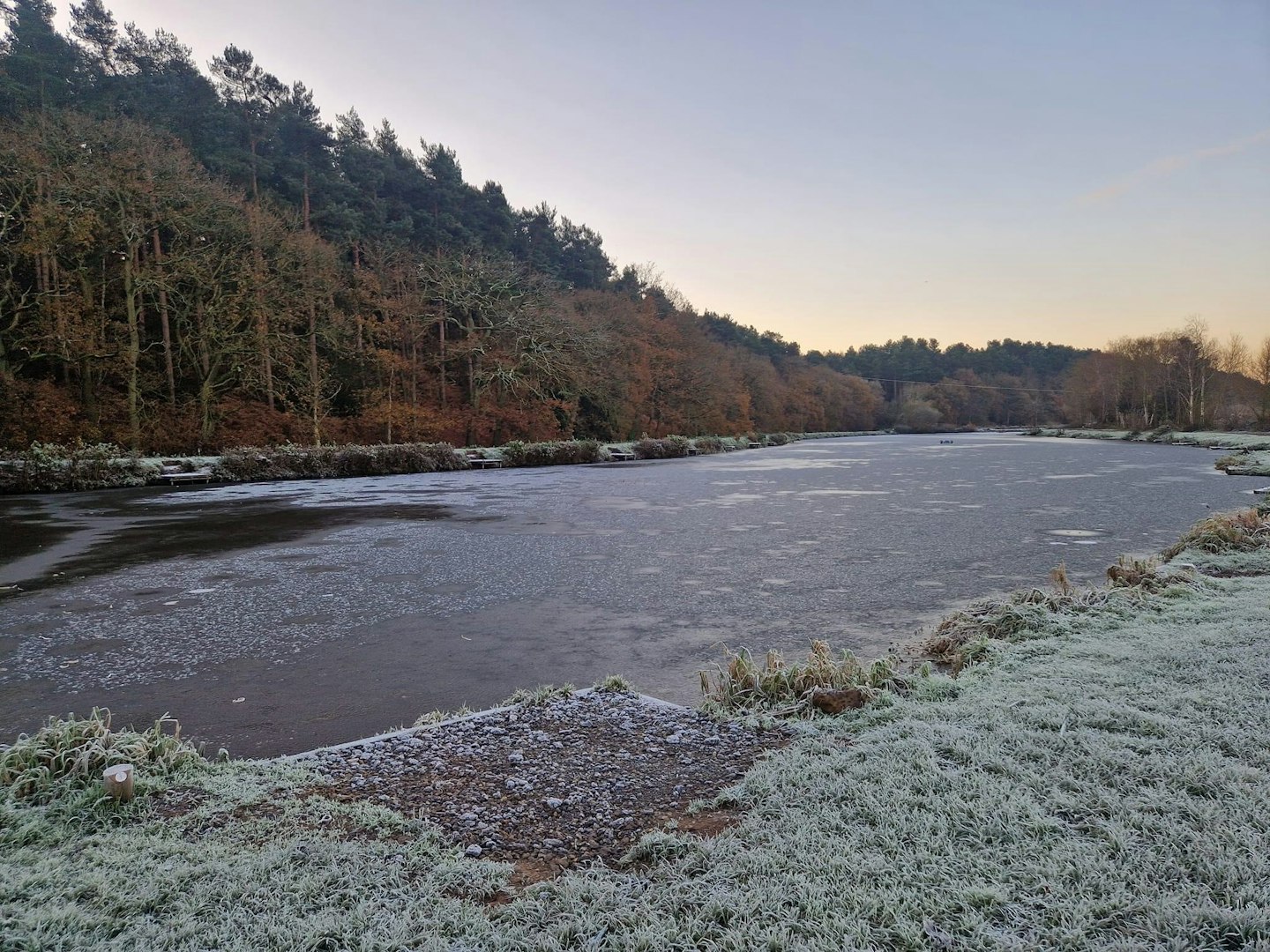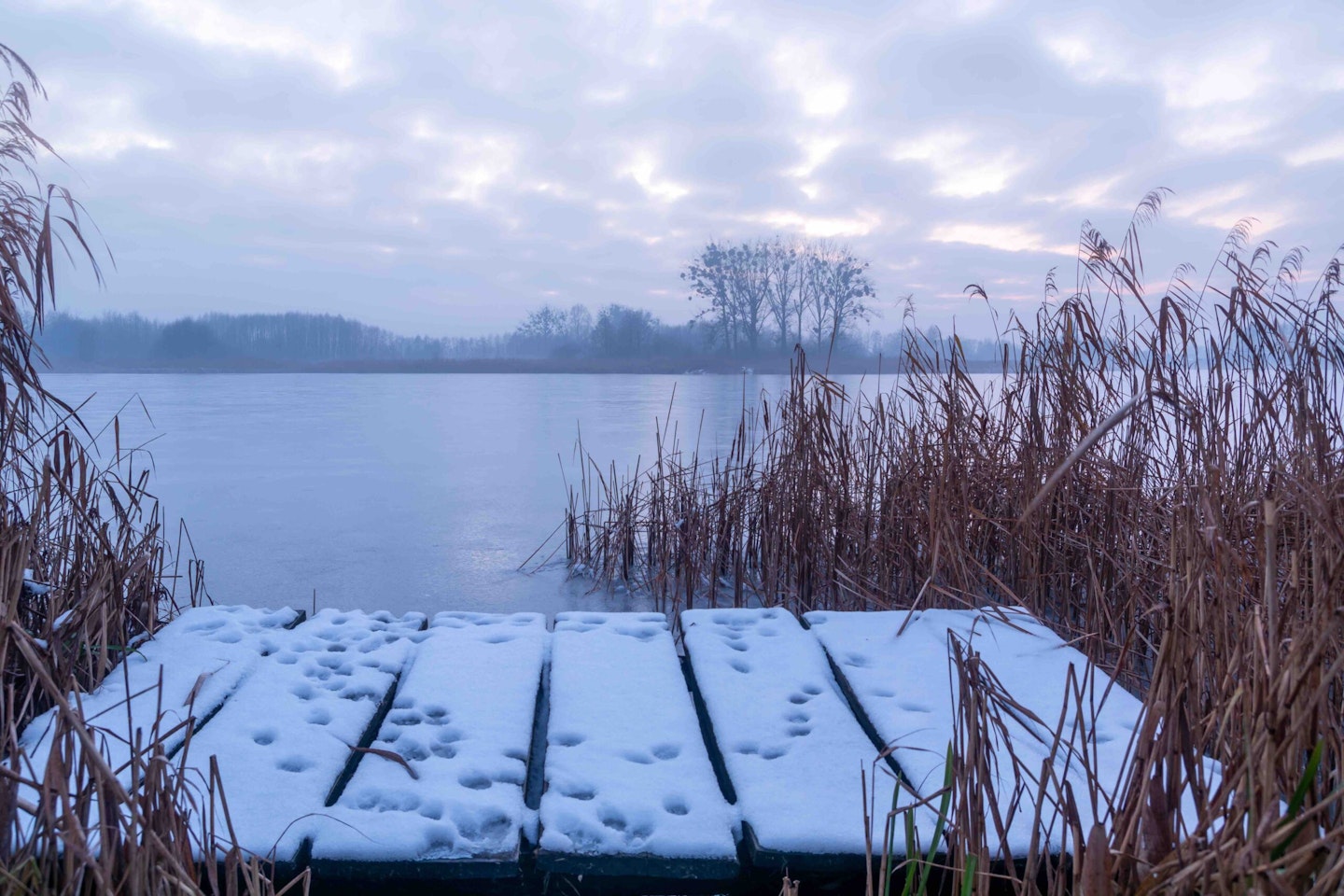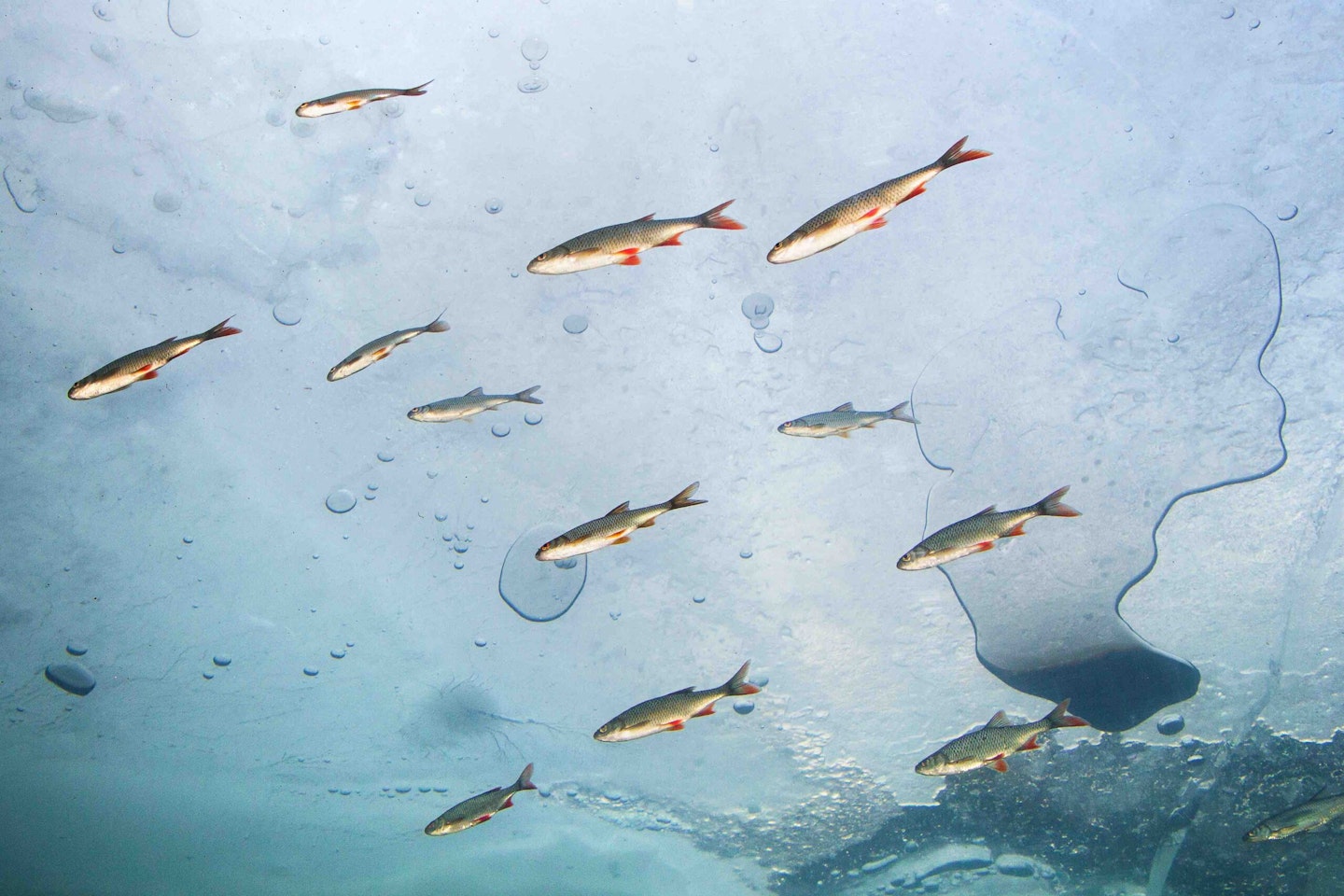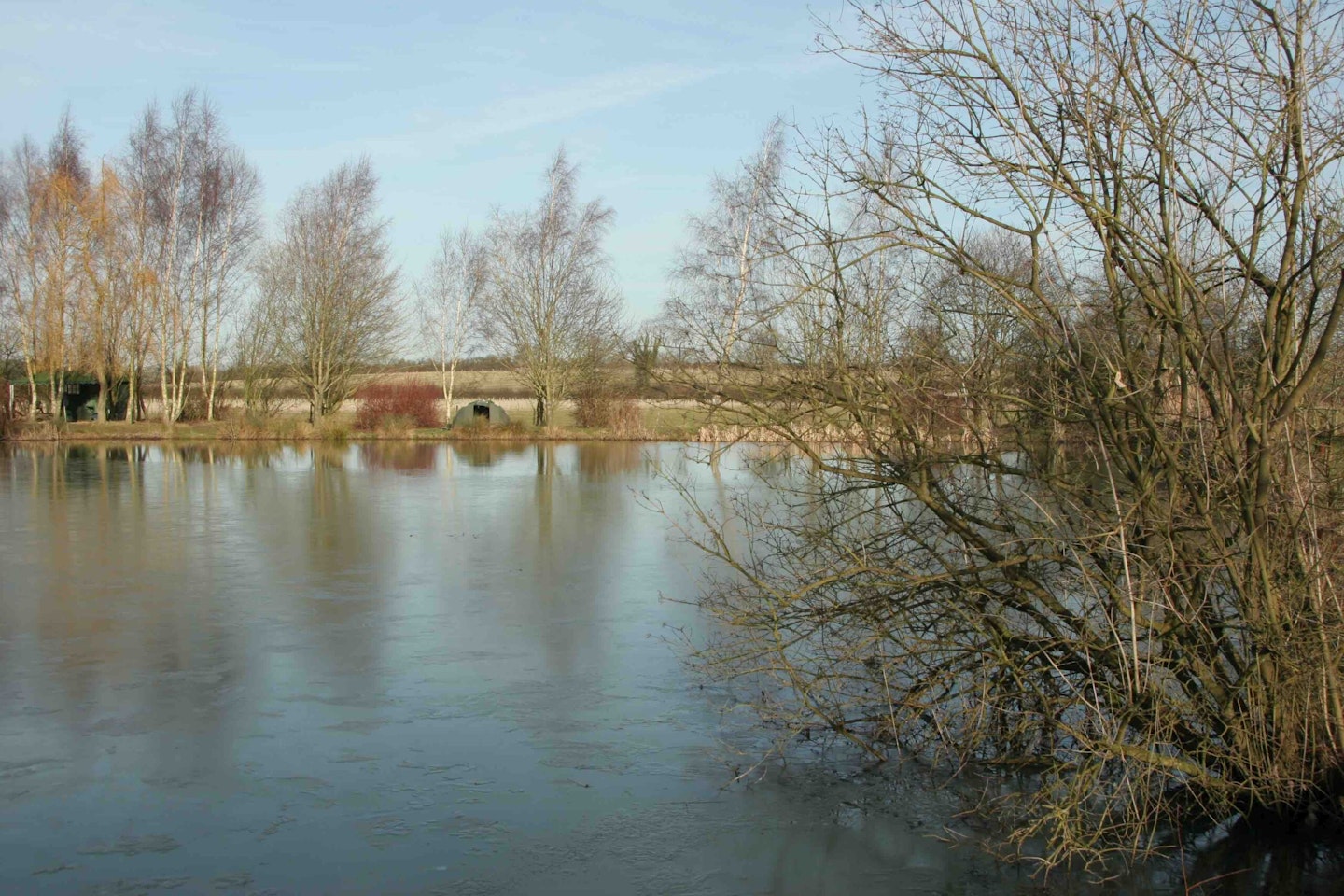Fortunately, very cold winters are a rare event in this country. But when freezing temperatures do occur they can have a profound effect on fisheries, particularly stillwaters.
On smaller lakes and ponds, the surface water temperature will fall below zero and ice will begin to form in the margins. Over time, the rest of the surface will freeze. An unusual property of water is that it reaches its maximum density at four degrees Celsius. Below this temperature, water begins to expand again. By the time ice forms, the density is far less than that of liquid water, so the ice floats. Without this feature of water, life below zero would be almost impossible for aquatic organisms, because even though the surface can be covered with thick ice, the water underneath will remain liquid.
IF YOU ARE OUT FISHING IN THE COLD, A GOOD SET OF FISHING BOOTS WILL KEEP YOUR FEET COMFORTABLE, CHECK OUT OUR BUYER'S GUIDE HERE.

The ice acts as an insulator, slowing the cooling of the water underneath and ensuring that only shallow water bodies will freeze solid. With liquid water, albeit very cold, always being available, ‘higher organisms such as fish can survive.
Cold water with a covering of ice does little harm to our fish in its own right. It can lead to other consequences, however, that can result in fish-kills.
A covering of ice stops the exchange of gases at the waters surface that normally occurs. Often, significant amounts of oxygen is absorbed at the surface and poisonous carbon dioxide is released, therefore carbon dioxide is dissolved into the water and can make it slightly more acidic. When ice prevents oxygen gas exchange from happening, the levels of dissolved oxygen can decrease quite rapidly, as even though the metabolism of the fish and other organisms is low in the cold water they all still respire using up oxygen quickly. Eventually, this can lead to fish-kills caused by a crash in oxygen levels.
CATCHING CARP CAN BECOME DIFFICULT DURING THE WINTER, BUT NOT IMPOSSIBLE, GET THE BEST TIPS HERE.

Ice-induced fish-kills are most likely to occur in lakes that have a high loading of waste, either because they contain a lot of decaying organic matter such as leaves, or because they contain a high stock of fish. Both these scenarios can see the water composition change over time and lead to toxic conditions.
Fortunately, ice rarely forms for long enough for fisheries to be at serious risk. Also, ice is rarely of the same thickness across the surface of a lake, and even where the ice in the margins may be several inches thick, there may be areas where it’s much thinner, such as those that catch the bulk of the sun.
Underwater springs, which may have a slightly higher water temperature, can also produce areas of thin ice. It’s this unpredictability in the thickness of the ice that often leads to animals and humans getting into trouble when walking on it.
Beneath ice, the conditions for fish can be surprisingly good. With the water temperature stable and sunlight passing through clear ice, fish can often be seen just below the surface soaking up the weak sun rays. The water also tends to become exceptionally clear when the surface is frozen, because it is fully sheltered from any wind.
THE BEST WINTER FISHING WATERPROOFS WILL MAKE SURE YOU ARE PROTECTED FROM THE ELEMENTS, HERE IS OUR BUYER'S GUIDE.

Fish won’t necessarily be in the deepest water in winter, and particularly when the lake is covered with ice. Expect them to be close to cover, such as weedbeds and overhanging trees, in areas that receive the most sunlight.
If the lakebed is a dark colour, such as silt, then so much the better, as this will absorb more of the sun’s heat.
When a lake begins to thaw, the process of freezing reverses and the coldest water will begin to sink, turning over the water underneath and often chilling the fish. This can be why the fishing is poor straight after a thaw. If you are able to fish just as the ice begins to break up, you may be in for a bumper day because the water temperature will still be relatively stable, encouraging fish to feed.
A QUALITY FISHING HOODIE CAN MAKE ALL THE DIFFERENCE DURING FREEZING TEMPERATURES, FIND THE BEST IN OUR BUYER'S GUIDE.

